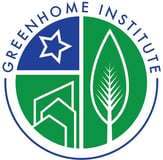5th Annual Residential Net Zero Energy Event
GreenHome Institute Weekly Free CE Webinar Presents:
Event
5th Annual Residential Net Zero Energy Event - Free CE Webinar
Wednesday, October 23 @ 11 AM EDT
Details to view the event are private and will be sent along with your ticket purchase.

